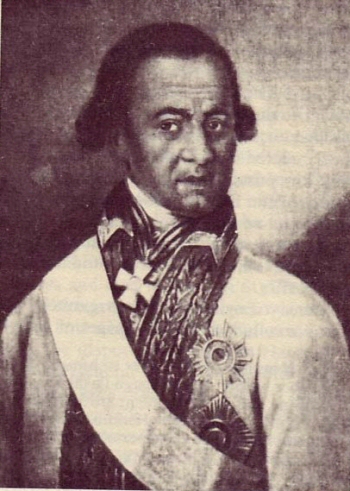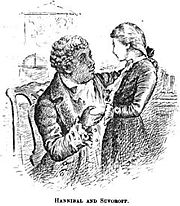| Egmond Codfried |
14 september 2009 15:37 |
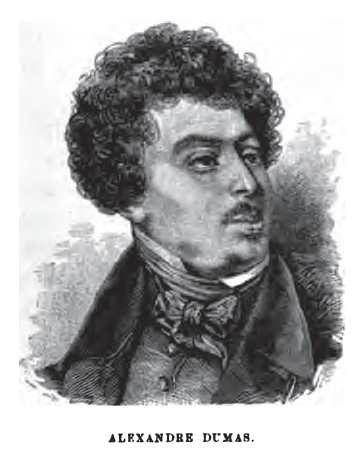
_(avec_signature).png)

Citaat:
Alexandre Dumas, père
From Wikipedia, the free encyclopedia
Jump to: navigation, search
"Alexandre Dumas" redirects here. For his son, see Alexandre Dumas, fils.
Alexandre Dumas, père
Alexandre Dumas, père.
Born 24 July 1802(1802-07-24)
Villers-Cotterêts, Aisne, France
Died 5 December 1870 (aged 68)
Puys (near Dieppe, Seine-Maritime), France
Occupation playwright and novelist
Nationality French
Writing period 1829–1870
Literary movement Romanticism and Historical fiction
Notable work(s) The Count of Monte Cristo, The Three Musketeers
Influences[show]
Hector Berlioz
Influenced[show]
Stephen King, Steven Brust,
Robert E. Howard, Narc�*s Oller, Juan Gómez-Jurado, Alexandru Hrisoverghi, Emilio Salgari
Signature
Alexandre Dumas, père (French for "father", akin to 'Senior' in English), born Dumas Davy de la Pailleterie (24 July 1802 – 5 December 1870)[1] was a French writer, best known for his numerous historical novels of high adventure which have made him one of the most widely read French authors in the world. Many of his novels, including The Count of Monte Cristo, The Three Musketeers, Twenty Years After, and The Vicomte de Bragelonne were serialized. He also wrote plays and magazine articles and was a prolific correspondent.
|
http://en.wikipedia.org/wiki/Alexandre_Dumas,_p%C3%A8re

Dumas, Thomas-Alexandre (1762–1806), vader van Alexander Dumas
Citaat:
Dumas, Thomas-Alexandre (1762–1806)
Thomas-Alexandre Dumas was a mulatto born in the French colony of Saint Domingue. He joined the French Army as a private and rose to the rank of a General during the French Revolution. Dumas is probably best known for fathering the famous French writer Alexandre Dumas (père).
The son of the lesser French nobleman Alexandre-Antoine Davy, Marquis de la Pailleterie, and a black slave woman, Thomas-Alexandre Dumas was born on the island of Saint Domingue on March 25, 1762. In 1772, the Marquis returned to France, followed by his son in 1776. As Dumas grew into manhood he moved to Paris, enjoying life with the financial support of his father. But soon after the senior Davy married his second wife, he suspended the payments to his son.
|
http://www.blackpast.org/?q=gah/duma...ndre-1762-1806
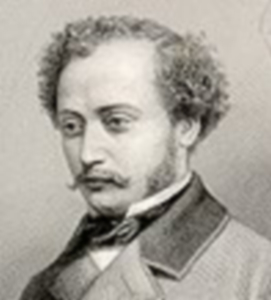
Citaat:
Alexandre, Dumas fils (1824-1895) One of the leading French playwrights and novelists of the last quarter of the 19th Century. He was born in Paris on July 27th, the illegitimate son of dressmaker Marie-Catherine Labay. His father was Alexandre Dumas, one of the most famous French writers of the 19th century, who was himself an illegitimate child. In 1831, Dumas fils was legally recognized by his father and taken from his mother, who at first tried to escape with her son. Marie-Catherine became the basis for many of the mother characters in Dumas’ writings, which often depicted the tragic fate of unmarried women. His father saw to it that he had the best education possible at the Institution Goubaux and the College Bourbon. In addition to the stigma of illegitimacy, he was also part black. His father was the mulatto son of a white French nobleman and a black Haitian girl. Young Dumas was taunted miserably by his schoolmates over these issues and this profoundly affected his thinking, behavior and writing. In 1844, Dumas fils moved to Saint-Germain-en-Laye to live with his father. There he met 20 year old Marie Duplessis, who as a teenager had been the mistress of several important men in Parisian society. She became Dumas’ lover and her tragic early death from tuberculosis inspired his 1848 novel La Dame aux Camelias. He later adapted his work into a play and after being rejected three times by the censors, it was finally presented in 1852. It became a huge success and helped him to pay off his debts and to assist his mother.
|

Chateau de Monte Cristo, Demeure et parc de Alexandre Dumas: Musée |


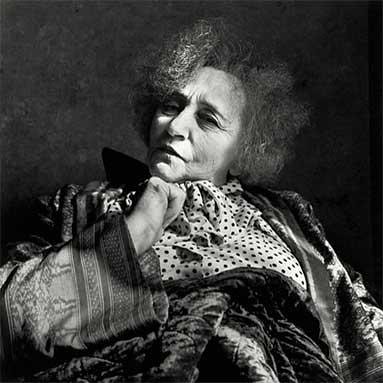


_(avec_signature).png)









